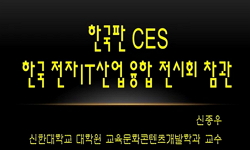This article explores the complex historical and public memory controversies surrounding the atomic bombings of Hiroshima and Nagasaki, focusing on the National Air and Space Museum’s Enola Gay exhibition. It examines how different historians interp...
http://chineseinput.net/에서 pinyin(병음)방식으로 중국어를 변환할 수 있습니다.
변환된 중국어를 복사하여 사용하시면 됩니다.
- 中文 을 입력하시려면 zhongwen을 입력하시고 space를누르시면됩니다.
- 北京 을 입력하시려면 beijing을 입력하시고 space를 누르시면 됩니다.

Historical Controversies and Collective Memory: Reassessing the Atomic Bombings of Hiroshima and Nagasaki
한글로보기https://www.riss.kr/link?id=A109160568
-
저자
이유정 (연세대학교)
- 발행기관
- 학술지명
- 권호사항
-
발행연도
2024
-
작성언어
English
-
주제어
역사 논쟁 ; 원자폭탄 ; 집단 기억 ; 에놀라게이 ; 전시 ; Historical Controversy ; Atomic Bombings ; Collective Memory ; Enola Gay ; Exhibition
-
등재정보
KCI등재
-
자료형태
학술저널
-
수록면
269-291(23쪽)
- 제공처
-
0
상세조회 -
0
다운로드
부가정보
다국어 초록 (Multilingual Abstract)
This article explores the complex historical and public memory controversies surrounding the atomic bombings of Hiroshima and Nagasaki, focusing on the National Air and Space Museum’s Enola Gay exhibition. It examines how different historians interpret the use of atomic bombs and the varying narratives presented to the public. Through the lens of Michel Foucault’s theory on popular memory, the study highlights the tensions between official narratives and revisionist perspectives. The analysis reveals how national patriotism and historical revisionism shape collective memory, questioning the ownership of historical truth. The Enola Gay controversy exemplifies the ongoing debate over historical representation, public history, and the ethical implications of wartime actions. By revisiting this controversy, the paper aims to provide a nuanced understanding of how history is constructed and contested, emphasizing the importance of inclusive and critical engagement with historical events.
동일학술지(권/호) 다른 논문
-
리소르지멘토 시기의 이상적인 아내 만들기: 테레사 콘팔로니에리의 사례
- 한국세계문화사학회
- 임동현
- 2024
- KCI등재
-
식품과 건강: 20세기 미국에서의 영양학과 식이 지침을 중심으로
- 한국세계문화사학회
- 이동규
- 2024
- KCI등재
-
서구문화를 수용한 한인의 정체성 문제 - 이미륵의 압록강은 흐른다를 중심으로 -
- 한국세계문화사학회
- 최선아
- 2024
- KCI등재
-
탈냉전 초기 미국의 외교안보 정책: 파나마 침략을 중심으로
- 한국세계문화사학회
- 장준갑
- 2024
- KCI등재




 스콜라
스콜라






